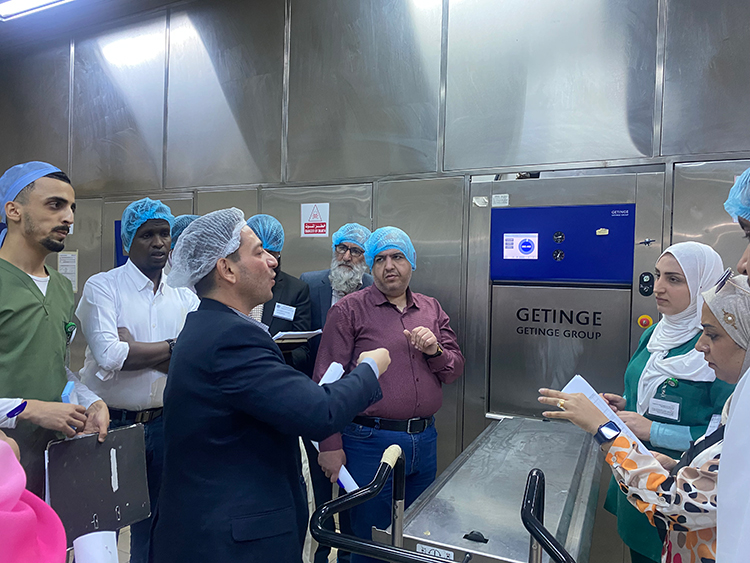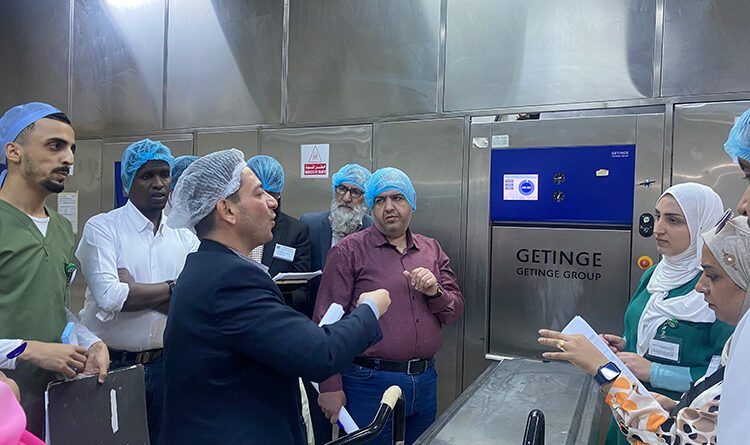Scaling up infection prevention and control capacities in fragile, conflict-affected and …
 25 Oct 2023, Field visit to the very well-equipped central sterile services department (CSSD) at Zarqa Hospital, Jordan.
25 Oct 2023, Field visit to the very well-equipped central sterile services department (CSSD) at Zarqa Hospital, Jordan.
The WHO Eastern Mediterranean Region is at a critical juncture to capitalize on the momentum from the COVID-19 response. Turning temporarily scaled-up capacity in countries and territories into permanent capacities, agendas and networks will strengthen health security and systems for the future.
Infection prevention and control (IPC) is an area in which the Region made substantial gains during the COVID-19 pandemic. The Region has also historically been vulnerable to the emergence and rapid transmission of disease outbreaks and pandemics due to various demographic, environmental and socioeconomic factors. Such outbreaks include Middle East respiratory syndrome (MERS), avian influenza A (H5N1), cholera and dengue.
Prior to the COVID-19 pandemic, only 50% of the Region’s countries and territories (11 of 22) had established an IPC unit or programme, and just 45% (10 of 22) had developed national IPC guidelines. Since March 2020, 5 more countries have set up a dedicated IPC unit or programme (bringing the total to 16 of 22). By November 2023, 77% of the countries and territories (17 of 22) had devised IPC guidelines.
Prioritizing and sustaining these substantial gains made across most of the Region will enhance IPC implementation and preparedness for
